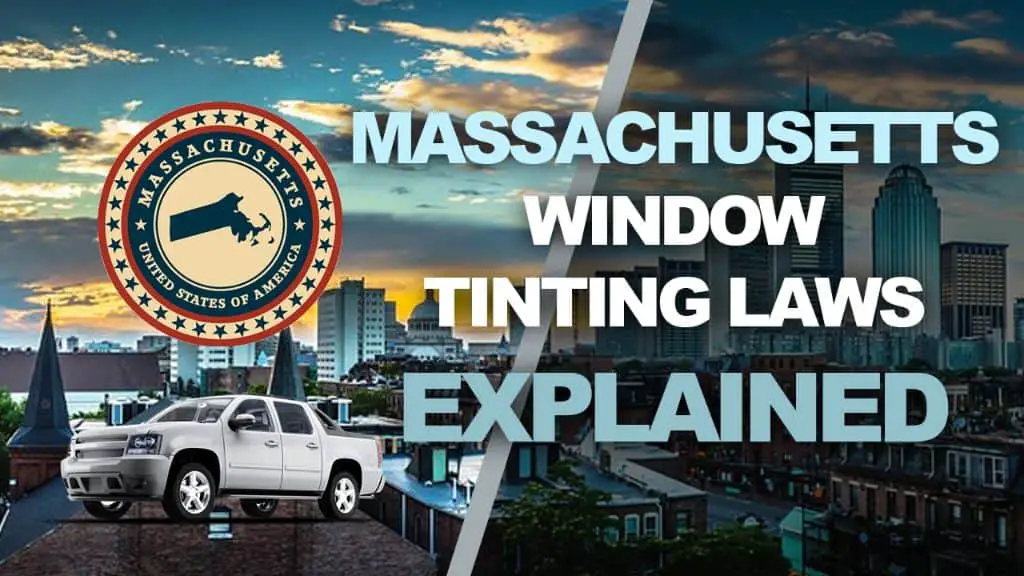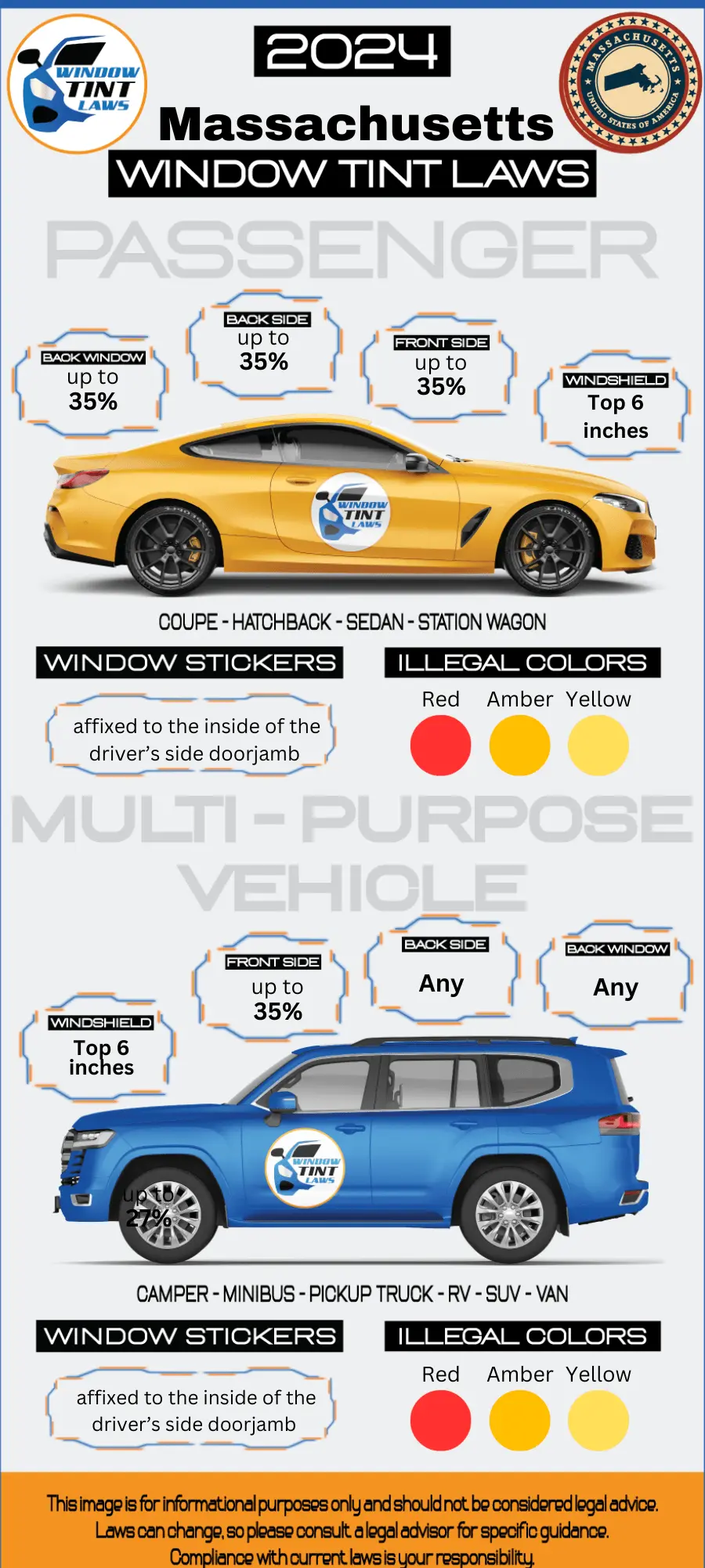

Article Created by Ryan Pietrzak
Last updated on February 14, 2024Massachusetts Tint Laws – 2024 Updated Legal Tint Limit
Please note that Massachusetts Tint Laws Regulation can change daily and may be interpreted differently at the city or county level. We recommend verifying this information with your local DMV or law enforcement agencies. We have manually fact-checked this content using official state resources. Massachusetts enacted tinting laws in 1985. If any information provided is incorrect or outdated, please contact us so we can make the necessary corrections. Thank you.
2024 Massachusetts Tint Laws – Legal Tint Limit For Passenger Vehicles
- Front Windshield: Non-reflective tint is allowed on the AS-1 line or top 6 inches of the windshield.
- Front seat side windows: up to 35% tint darkness allowed
- Back seat side windows: up to 35% tint darkness allowed
- Rear window: up to 35% tint darkness allowed
2024 Massachusetts Tint Laws – Legal Tint Limit For Multi-Purpose Vehicles
- Front Windshield: Non-reflective tint is allowed on the AS-1 line or top 6 inches of the windshield.
- Front seat side windows: up to 35% tint darkness allowed
- Back seat side windows: Any tint darkness can be used.
- Rear window: Any tint darkness can be used.

- Medical exemptions: Massachusetts tint laws permit darker tints on front side windows with a doctor’s note
- Massachusetts tint laws prohibit metallic or reflective tint on any of the windows
- Massachusetts tint laws are statewide with no additional local regulations
- Violating Massachusetts tint laws can vary, but it typically ranges from $250 to $500. The exact amount depends on the specific circumstances of the violation and local jurisdictional policies. Repeat offenses may result in higher fines.
What does VLT Mean according to Massachusetts Tint Laws?
- Window tint film’s light transmission is measured as VLT (Visible Light Transmission) and each state has its own legal limits for VLT on car windows.
- A HIGHER VLT means that more light is allowed to pass through the window tint film.
- Example: a 75% tint will allow 75% of the light to pass through whereas a 5% tint will only allow 5% of the light to pass through, making the 5% tint a much darker film.
- Massachusetts window tint laws has specific VLT limits for Passenger Vehicles and Multi-Purpose Vehicles.
FAQ’s Regarding Massachusetts Tint Laws and Massachusetts Legal Tint Limit
What is the darkest legal tint in Massachusetts?
In Massachusetts, the darkest legal window tint is 35% VLT (Visible Light Transmission) for all side and rear windows of passenger vehicles. This means the tint must allow at least 35% of the light to pass through.
Are police exempt from window tint laws in Massachusetts?
Yes, in Massachusetts, police vehicles are typically exempt from the state’s window tint laws. This exemption allows law enforcement vehicles to use window tint that is darker than the legal limit set for civilian vehicles.
How do I get a tint waiver in Massachusetts?
In Massachusetts, to obtain a window tint waiver for medical reasons, you must submit an Application for Tinted Glass Waiver to the Registry of Motor Vehicles (RMV). This application must include a physician’s statement certifying a medical condition that necessitates darker tint for protection. Once approved, the waiver permits window tint that is darker than the standard legal limits.
How much is a tint ticket in Massachusetts?
In Massachusetts, the cost of a ticket for a window tint violation can vary, but it typically ranges from $250 to $500. The exact amount depends on the specific circumstances of the violation and local jurisdictional policies. Repeat offenses may result in higher fines.
Can you get pulled over for tint in Massachusetts?
Yes, in Massachusetts, you can be pulled over by law enforcement if your vehicle’s window tint is suspected to be darker than the state’s legal limit. This could lead to a ticket or a requirement to remove the non-compliant tint.
How to get a Tint Exemption in Massachusetts
Massachusetts Department of Transportation’s Registry of Motor Vehicles issues medical exemptions. The form is available below and must be filled and signed by a licensed physician. The exemption can only be issued by vehicles owned or operated by persons with medical conditions.
Furthermore, waivers are only issued to persons who are permanently photophobic or photosensitive, and when such conditions can not be corrected with sunglasses.
For more information regarding window tint medical exemptions in _____ you can check out this resource:

Ryan Pietrzak
Creator of Windowtintlaws.us
